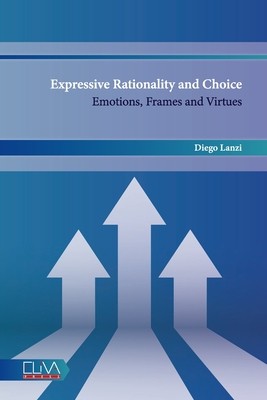
- We will send in 10–14 business days.
- Author: Diego Lanzi
- Publisher: Eliva Press
- ISBN-10: 1636485774
- ISBN-13: 9781636485775
- Format: 15.2 x 22.9 x 0.4 cm, softcover
- Language: English
- SAVE -10% with code: EXTRA
Reviews
Description
The essays collected in this book cover a wide array of issues connected with the idea of expressive rationality. Roughly, expressive choices imply a certain level of moral, psychological and emotional involvement, a sort of expressive attachment to the situation. An expressively rational individual wants to express, exactly in that situation, what kind of a person he is, and what he values highly in life. His rationality is emergent and agency-driven, not purposive and goal-driven like in the case of instrumental rationality. In these papers, we shall investigate how emotions, values, frames or virtues can embed choice behavior.
The embeddedness of choice behavior requires not only to analyze external structures of constraints, or social roles, that can shape choice problems and their resolution, but also internal ones which are elicited by emotions, inner aspirations, personal vices and personality traits. In this way, choice theory can dialogue not only with sociology and social theory, but also with psychology, virtue ethics and moral philosophy.
The approach of the book is to extend Rational Choice Theory by using some concepts of category theory. Category theory focuses on the relations among objects and takes functions by themselves as the elements of interest. More precisely, any category is described by the morphisms between its objects. The term morphism comes from the ancient Greek's word morphè, i.e., form or shape, and it expresses the state of having a specified shape. The concept is widely used in several branches of scientific inquiry from biology to semiotics, linguistics or computer science. In this volume, morphisms are applied to choice theory.
EXTRA 10 % discount with code: EXTRA
The promotion ends in 19d.13:51:53
The discount code is valid when purchasing from 10 €. Discounts do not stack.
- Author: Diego Lanzi
- Publisher: Eliva Press
- ISBN-10: 1636485774
- ISBN-13: 9781636485775
- Format: 15.2 x 22.9 x 0.4 cm, softcover
- Language: English English
The essays collected in this book cover a wide array of issues connected with the idea of expressive rationality. Roughly, expressive choices imply a certain level of moral, psychological and emotional involvement, a sort of expressive attachment to the situation. An expressively rational individual wants to express, exactly in that situation, what kind of a person he is, and what he values highly in life. His rationality is emergent and agency-driven, not purposive and goal-driven like in the case of instrumental rationality. In these papers, we shall investigate how emotions, values, frames or virtues can embed choice behavior.
The embeddedness of choice behavior requires not only to analyze external structures of constraints, or social roles, that can shape choice problems and their resolution, but also internal ones which are elicited by emotions, inner aspirations, personal vices and personality traits. In this way, choice theory can dialogue not only with sociology and social theory, but also with psychology, virtue ethics and moral philosophy.
The approach of the book is to extend Rational Choice Theory by using some concepts of category theory. Category theory focuses on the relations among objects and takes functions by themselves as the elements of interest. More precisely, any category is described by the morphisms between its objects. The term morphism comes from the ancient Greek's word morphè, i.e., form or shape, and it expresses the state of having a specified shape. The concept is widely used in several branches of scientific inquiry from biology to semiotics, linguistics or computer science. In this volume, morphisms are applied to choice theory.


Reviews